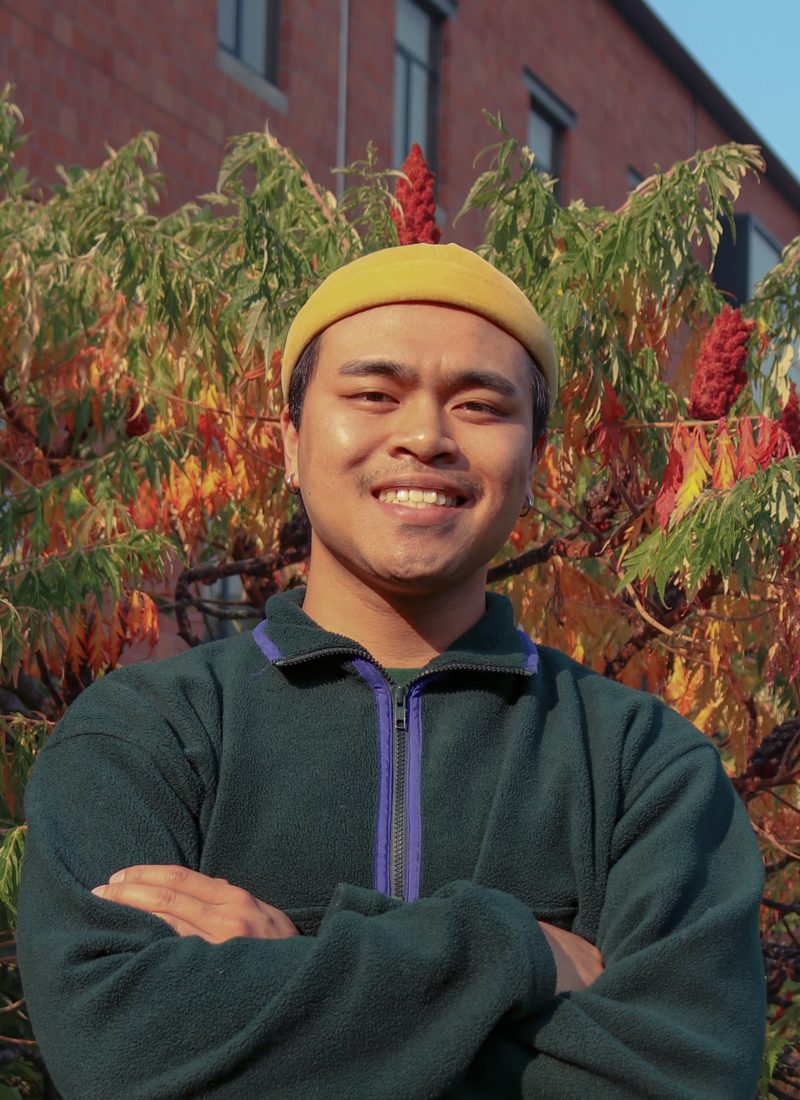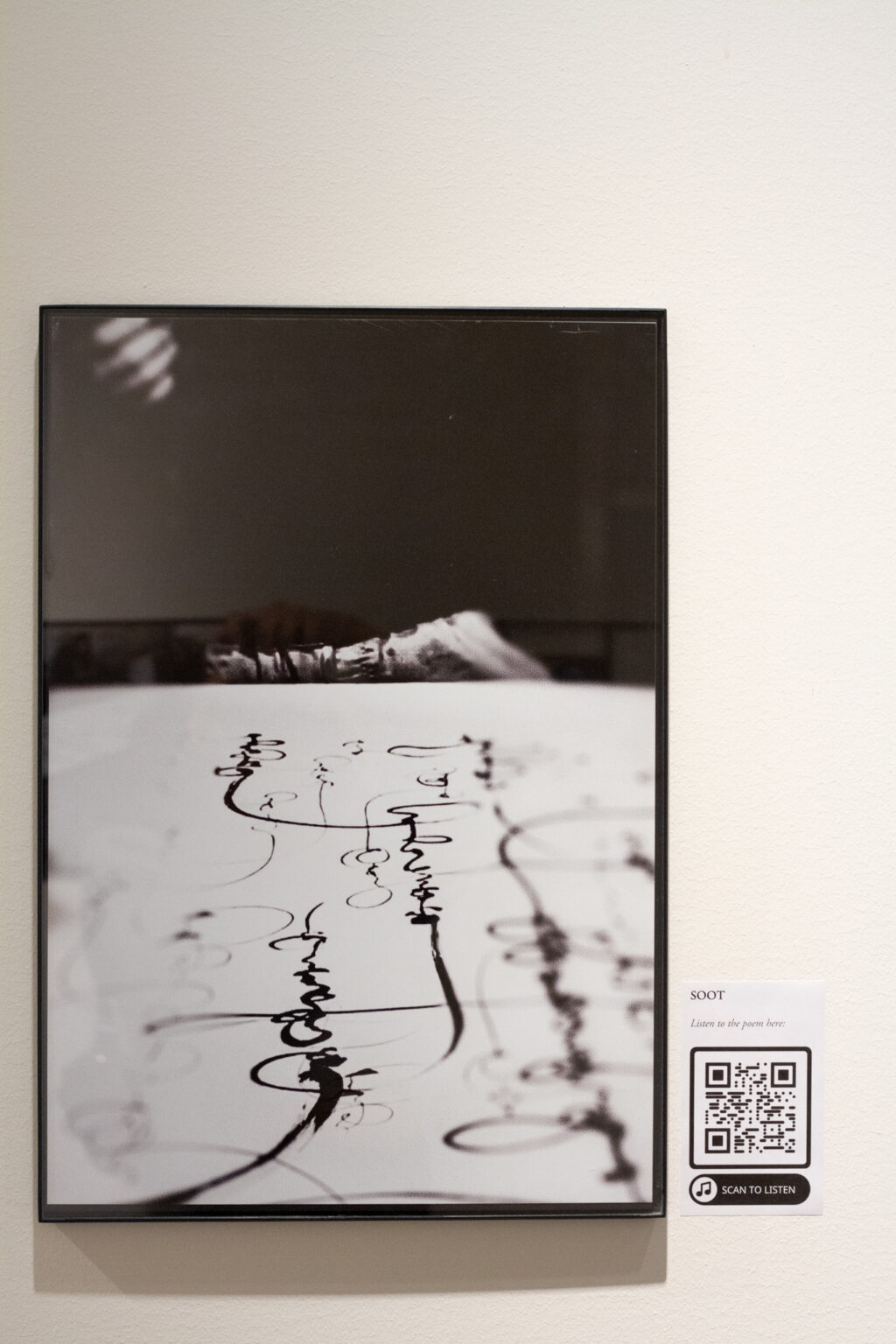Sam Roxas-Chua, Portland multimedia artist, was featured in the WSU Visiting Writers Series event on Oct. 25, and talked about his unique life by sharing his spoken-word poetry and visual art with audience members and students from the WSU Vancouver and Pullman campuses.
Roxas-Chua is a local artist-in-residence and one of three artists at the Portland Chinatown Museum, as well as owner of the Poetry Loft named “The Requatorist.” He is also Filipino-born, Chinese-adopted and American-raised and this mix of identities is reflected in his work. The artist, poet and author incorporates writing and image making into his daily practice, and has written many acclaimed publications, including “Echolalia in Script” and “Fawn Language.”
“Record your poems after you read, after you write rather. Record it and listen to it. Chances are, the places where you kind of hiccup a little bit, that is like something to open [and expand on].” – Sam Roxas-Chua

According to Roxas-Chua, he sees writing as an art, and poetry as a conversation. His website states, “This is not to say that Sam does not write from his own heritage and history of love, loss, and hauntings. He writes poetry because, as he says, ‘ … it is the only language I can truly call my own. I was fortunate to grow up speaking four languages. … Poetry allows me freedom to stitch these languages together into something that I call my own.’”
One of Roxas-Chua’s introductory poems at the event, “Four Tongues,” depicts the life of someone who has lived in multiple, “undulating worlds.” In this poem, he writes of the four languages he was raised to speak: Tagalog, Hokkien, Mandarin and English. The poem is about how the outside world perceived him – how the voices of others, including strangers or the voice of his own mother, spoke of him.
“His blood is tea brown, he is not Chinese,” said Roxas-Chua as he was reading “Four Tongues.”
Roxas-Chua also talked about his unique approach to “asemic writing,” a process that combines free form writing with the use of images and words. He draws shapes which he then takes inspiration from and turns into poetry later. For instance, Roxas-Chua recalled a drawing he completed on top of a horse skull using ink sourced from wood that was once a part of an old Chinese laundry establishment. He turned the ashes of that wood into ink, which then turned into a drawing, which inspired a poem titled “Saying Your Name Three Times Underwater.”
When touching on topics related to grief, death and dying, he spoke a poem titled “Please be guided accordingly” in memory of an aunt who recently passed. Roxas-Chua wrote this poem to consider the department of his beloved family member, whilst coping with the loss of her presence. The first line of this poem begins “The doors of the palms are closing.”

Roxas-Chua emphasized the importance of finding a space for oneself when overwhelmed by the content one is handing.
“Invite the bombardment … look at danger straight in the face. Look at what is challenging you, look at it straight in the face and say ‘what do you want from me?’ Look at challenges straight on because you have the poetic gift, you have this mind that wants to relate to the world with a poem, do it,” Roxas-Chua said. “I’m interested in how a poem lives in the world, I want to live in the world like a poem. I know it sounds very poetic, but I’m serious, how does a poem open a door for someone?”
From his writing process to the works he presents, Roxas-Chua ultimately demonstrated to watchers how combining multiple different mediums, such as spoken word poetry and the use of drawing and painting, can help artists connect deeply with themselves.
“Record your poems after you read, after you write rather. Record it and listen to it. Chances are, the places where you kind of hiccup a little bit, that is like something to open [and expand on],” Roxas-Chua advised other poets.
Roxas-Chua’s exhibit at the Portland Chinatown Museum will be opening on Nov. 10 and will last through January 2023. According to the Portland Chinatown Museum website, student tickets for admission are $5. The museum’s hours are Friday through Sunday, 11 a.m. to 3 p.m.
WSU’s Visiting Writers Series is an ongoing, collaborative project between the Pullman and Vancouver campuses where featured writers of fiction, nonfiction, poetry and more share their bodies of work with university students, faculty and staff attendees. Roxas-Chua’s Visiting Writers Series lecture was recorded and is available to watch online through the WSU Visiting Writers Series YouTube channel here.

Sean is a junior studying digital technology & culture at WSU Vancouver.
